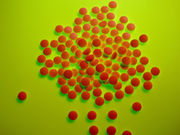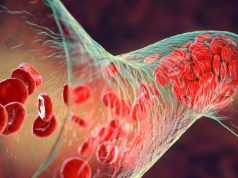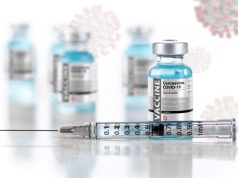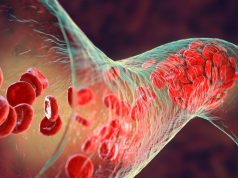Low dose cuts risk in equipoise for continued anticoagulation; rate of bleeding similar to aspirin
MONDAY, March 20, 2017 (HealthDay News) — Rivaroxaban is associated with reduced risk of recurrent events among patients with venous thromboembolism in equipoise for continued anticoagulation, according to a study published online March 18 in the New England Journal of Medicine. The research was published to coincide with the annual meeting of the American College of Cardiology, held from March 17 to 19 in Washington, D.C.
Jeffrey I. Weitz, M.D., from McMaster University in Hamilton, Canada, and colleagues randomized 3,396 patients with venous thromboembolism to receive once-daily rivaroxaban (20 or 10 mg) or aspirin. All participants had completed six to 12 months of anticoagulation therapy and were in equipoise regarding the need for continued anticoagulation.
The researchers found that the primary efficacy outcome of symptomatic recurrent fatal or nonfatal venous thromboembolism occurred in 1.5, 1.2, and 4.4 percent of patients receiving 20 mg rivaroxaban, 10 mg rivaroxaban, and aspirin, respectively (hazard ratios for 20 mg and 10 mg rivaroxaban versus aspirin, 0.34 and 0.26, respectively). The rates of major bleeding were 0.5, 0.4, and 0.3 percent in the 20 mg rivaroxaban, 10 mg rivaroxaban, and aspirin groups, respectively, while the corresponding rates of clinically relevant nonmajor bleeding were 2.7, 2.0, and 1.8 percent.
“Among patients with venous thromboembolism in equipoise for continued anticoagulation, the risk of a recurrent event was significantly lower with rivaroxaban at either a treatment dose (20 mg) or a prophylactic dose (10 mg) than with aspirin,” the authors write.
The study was funded by Bayer Pharmaceuticals.
Abstract
Full Text
Editorial
More Information
Copyright © 2017 HealthDay. All rights reserved.








